Search
 Video
Video
Navigate the New World of Genetic Testing: Tips and Tools for PCPs
In this practical yet nuanced talk, gastroenterologist Aparajita Singh, MD, MPH, describes technological advances and dwindling barriers that are making tests for pathogenic gene variants more valuable and available than ever before.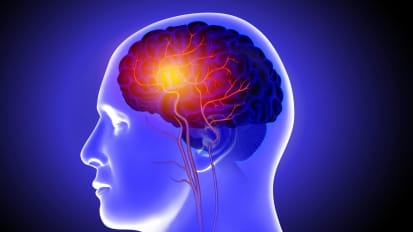 Video
Video
Brain Aneurysms: What Primary Care Providers Need to Know
This presentation from neurosurgeon Ethan A. Winkler, MD, PhD, offers data-driven guidelines on assessing a patient's risk, covering factors that range from alcohol consumption and family history to the location, size and shape of the aneurysm. Video
Video
Advances in GI Cancer Care: How to Consider the Latest Drugs and Strategies
In this new edition of the Cancer Center Live Series, three UCSF specialists present exciting updates on difficult-to-treat gastrointestinal malignancies, including pancreatic cancer, peritoneal metastases and advanced biliary tract cancers.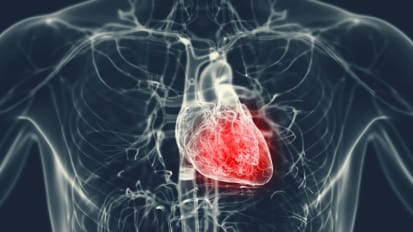 Video
Video
Currents in Myocarditis: A Fresh Look at Causes, Classification and Care
COVID-19 infections and vaccines, as well as certain cancer treatments, can play roles in myocarditis – whose incidence has increased about tenfold in recent years.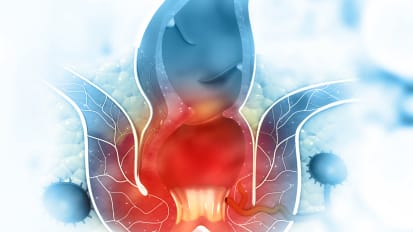 Video
Video
Pain in the Butt: Tips on Diagnosing and Caring for Hemorrhoids and Fissures
Diana Ziser Rego, an adult-gerontology nurse practitioner with expertise in lower GI disorders, describes efficient routes to identifying hemorrhoids and anal fissures, offering tips on what questions to ask, straightforward management plans and guidance on when to refer. Video
Video
Contraceptive Game Changer: How Patients Can Benefit From the OTC Birth Control Pill
Family physician Montida Fleming, MD, who played a role in norgestrel (Opill)'s road to FDA approval, presents what providers need to know about this soon-to-be-available option, from mechanisms of action to the data on efficacy and safety. Video
Video
New Keys to Cancer Care: How 2023 Findings Impact Treatment Decisions
These four collaborative talks from UCSF and John Muir Health specialists shine a light on recent study results that should inform treatment planning for patients with a variety of GI, breast, lung and blood cancers. Video
Video
Unconscious Bias in Patient Care: Harms and Paths to Healing
While physicians intend to treat all their patients with equal respect and compassion, studies show that favoritism and other implicit attitudes can emerge, especially in times of stress, affecting medical decisions and care quality.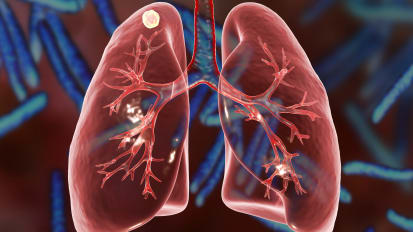 Video
Video
Better Management of Lung Nodules: Cutting-Edge Diagnostic and Therapeutic Tools
Interventional pulmonologist Diana H. Yu, MD – who performed the first robotic bronchoscopy at UCSF – presents the case for more aggressive lung screening in California and throughout the country, then offers an exciting look at the latest ultrasound and robotic techniques for detecting lesions, assessing risk of malignancy and performing biopsies. Video
Video
Streamline Your Approach to Carpal Tunnel Syndrome: An Expert on Diagnostic Tactics and Effective Care
In just 20 minutes, orthopedic surgeon Lauren Shapiro, MD, MS, presents what clinicians need to know to identify CTS, from symptoms to simple in-office strength and screening tests, providing criteria for when to pursue electrodiagnostic studies. Video
Video
Integrative Approaches to Symptom Management for Cancer Patients
This presentation from a variety of UCSF specialists covers a range of practical topics, from how clinicians can easily meet the new DEA educational requirement for opioid use disorder to the current evidence on mindfulness meditation's capacity to alleviate physical, psychosocial and even existential distress in cancer patients. Video
Video
New Perspectives on Persistent Opioid Dependence: Reasons Patients Struggle, Routes to Better Care
Pain medicine specialist Chris R. Abrecht, MD, explains why the clinical focus on the physical pain of opioid withdrawal may be hampering effective treatment Video
Video
Erectile Dysfunction: Guide to Diagnosis and Complete Care for a Common Condition
This presentation from urologist John Lindsey, MD, lays out the numerous contributing factors as well as treatments for erectile dysfunction, which affects about 30 million men in U.S. but isn’t always discussed during regular checkups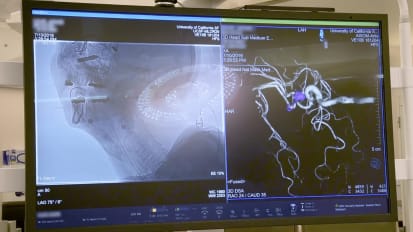 Video
Video
Treating Brain Aneurysms: How a Savvy Neurosurgical Team Individualizes Care
In this short video, vascular and endovascular surgeon Ethan Winkler, MD, PhD, explains the factors that go into determining the right treatment for different cases involving dangerously bulging blood vessels in the brain. Video
Video
Fall’s Virus Harvest: What to Know About COVID, RSV, Flu, and the New Vaccines
This talk provides answers to the questions clinicians are starting to hear every day, including how worried to be about current COVID cases, when the latest COVID vaccines will be available, and whether they’ll work better against upcoming variants.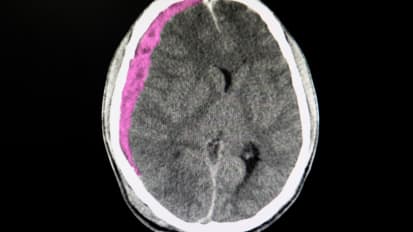 Video
Video
Advanced Care of Subdural Hematoma in the Elderly: A Look at Embolization
Neurosurgeon Luis Savastano, MD, PhD, discusses middle meningeal artery embolization, a cutting-edge, outpatient procedure for subdural hematoma. Video
Video
Everyday Heart Disease Prevention: An Update on Risk Assessment and Clinical Strategies
With heart disease deaths on the upswing since 2010, primary care providers must routinely develop individualized plans to protect their patients from atherosclerosis. Video
Video
Advances in Obesity Medicine: Better Bariatric Surgery Options and Outcomes
With obesity affecting 40% of the U.S. population, bariatric surgeon Jonathan Carter, MD, reviews the devastating health effects of excess body fat and contends that clinicians can no longer sidestep difficult conversations about weight management.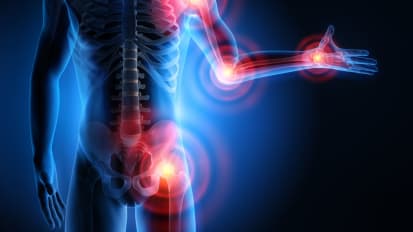 Video
Video
The Intriguing Truth About Orthobiologics: Current Uses, Future Possibilities
For healing diseased or damaged tissues, therapies that use the body's native cellular components may have long-term advantages over go-to treatments, such as steroid injections. Video
Video
The Fetal Treatment Center in Oakland: Expanded Services, Informed Strategies - Intro
Learn which patients may benefit from referral and what to expect from the process in this update from perinatologist Annalisa Post, MD. Video
Video
Preeclampsia Update: How to Identify and Manage a Perilous Pregnancy Complication
This important talk from Annalisa Post, MD, a perinatologist with the UCSF Fetal Treatment Center, clarifies the definition of preeclampsia, lays out risk factors, and elucidates the tricky business of recognizing worsening hypertension in pregnancy.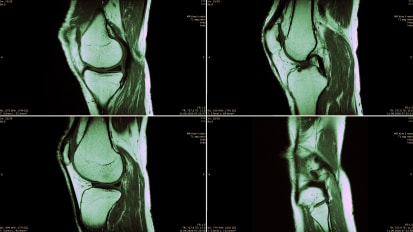 Video
Video
Keys to the Knees: How to Approach a Variety of Meniscus Tears
Historically misunderstood even by sports medicine specialists, meniscus tears are a range of conditions best managed by considering specifics of both the injury and the patient. Video
Video
Halt the UTI Cycle: Tips and Techniques for Treating a Common Urinary Woe
Urogynecologist Abigail Shatkin-Margolis, MD, offers an update to help PCPs efficiently assess and treat patients prone to urinary tract infections, with a focus on both young and elderly adults. Video
Video
The Reflux “Cycle of Hell”: An ENT Perspective on Setting Patients Free
When different doctors – PCPs, gastroenterologists and otolaryngologists – take different approaches to the common problem of acid reflux, patients often continue to suffer.


